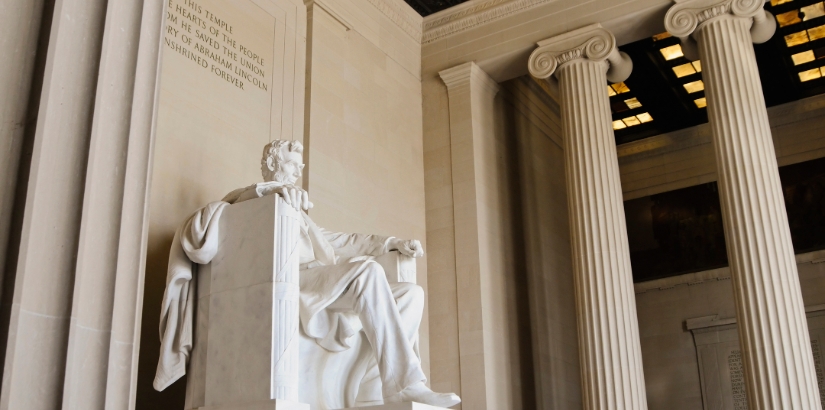Beyond the Election Cycle
The November election is less than one week away. In a year where the experience of time has been distorted, with days blending together but months are leaping by, this looming event has nearly arrived. With so many timelines outside our control, from the pandemic waves and in-person school schedules to the unsettling extension of fire season, this election will arrive on a refreshing predictable timeline – though the conclusion may be thrust into uncertain timing if results are challenged beyond the mail-in count.
One thing we can count on, the election reliably brings a flurry of speculation about how each candidate or political party will impact financial markets and whether investment decisions should be delayed or accelerated based on the outcome of the election.
What History Tells Us
A review of financial market performance under different political administrations teaches us two lessons.
The first lesson is to stay diversified, as not only the election outcome is difficult to predict, but the market reaction is similarly unknowable. Look no further than 2016 for an example. The polls predicted Trump would lose the election, and market forecasters presumed that if he did manage to win, stock prices would crumble based on his antagonistic policy proposals.1 Both were wrong. Markets rallied in late 2016 and into 2017 following the election, declined in 2018, rallied strongly in 2019, and are mixed in a volatile 2020 so far. Rather than precipitous decline, perhaps unsurprisingly, the prevailing price pattern under the current political administration has been intense volatility. Investors who stayed diversified, and adjusted risk and caution based on their own life circumstances, fared better through this period.
The second lesson is that the specific party in the White House impacts market returns less than many people would like to believe. The impacts on daily life, global health, and social progress can be immense – but large corporate enterprises have been able to adapt and profit under both major parties. Researchers studied this relationship and concluded there is no evidence suggesting the president’s party has any statistically significant impact on U.S. equity market returns.2 Intuitively this makes sense since stock returns are influenced by a multitude of factors including valuations, business cycles, unpredictable pandemics, not to mention the increasingly global economy with the S&P 500 generating more than 40% of its revenues outside the U.S.3
Understanding that the choice of a particular presidential candidate does not directly translate to market performance, since 1926, the S&P 500 has fared better under Democratic presidents on average. This counters the prevailing wisdom that markets prefer Republican policies, which are more complex than just lowering tax rates. Further, analysts like to say that markets prefer gridlock – when one party controls the presidency and the other controls congress – since it leads to less change and uncertainty. While sounding logical, the data shows that market returns have been higher in periods of unified governments than divided since 1926.4 Neither of these data points can guarantee or predict what the coming four years will hold, but serve as a reminder that the market is a complex system – and even the president of the United States, arguably still the most powerful individual in the world, does not control its movements.
A Green Future
No, not the Green Party, but rather a future that includes greater commitment to clean energy from renewable resources and sustainable business practices. Progress in this arena may not be as swift as many would like to see (or argue is necessary to combat climate change), but it is undeniable that the economics of energy production are shifting in this direction. Macro trends like clean energy expansion, demographic demand for healthcare, and much needed investment into domestic infrastructure are likely to see growth regardless of who wins in November.
Biden has published plans to invest heavily in research and innovation and aims for a 100% clean energy U.S. economy by 2050. Updates to regulation via fuel and emission standards would support this industry expanding more quickly. Still, it is important to recognize that many companies have turned profitable over recent years and are no longer dependent on subsidies. At the same time, traditional oil majors may continue to suffer as demand is forecast to remain weak for this year and next on lower demand for jet fuel in particular.5 This is part of a larger economic cycle shift, not materially different from other technological advancements throughout history that change how business is conducted and alter the corporate landscape.
Public support for sustainable investing and corporate responsibility has been consistently increasing, pushing much of the private sector to roll out decarbonization plans even absent government regulation. We saw this get a major boost following the Paris Climate Accord, and vocal support from corporate leaders even after the US formally removed itself from the agreement. Friendly policies, of course, would offer additional tailwinds, but won’t be as determinative for the clean-energy industry as they were in recent decades.
Extending the Time Horizon
We are usually investing our clients’ resources for decades, often considering future generations and familial beneficiaries that even further extend their time horizon. This inherently requires an approach that navigates beyond any election cycle and a reminder that four years is often “short-term” in the frame of stewarding generational assets.
This is not to say the election doesn’t matter; it does. So much of our national well-being depends on it, and literal lives are in the balance on issues including coronavirus response, criminal justice reform, and climate change policy. Our clients are bound to feel the uncertainty of this year’s election, and we strive to create resilient portfolios that don’t add financial stressors to that worry.
We hope everyone gets out to vote in the next week if you haven’t done so already.
1 From 10/31/2016, What Happens to the Markets if Donald Trump Wins?: “The conventional wisdom is that, right off the bat, the stock market would fall precipitously. Simon Johnson, the Massachusetts Institute of Technology economist, posited that Mr. Trump’s presidency would “likely cause the stock market to crash and plunge the world into recession.” The New York Times
2 Alternative Estimates of the Presidential Premium. By: Sean D. Campbell, Federal Reserve Board, & Canlin Li, UC Riverside. 11/19/2004. FederalReserve.gov
3 S&P 500 Global Sales. By Howard Silverblatt. 12/31/2018. S&P Dow Jones Indices
4 Are Republicans or Democrats Better for the Stock Market? By Bob French, CFA. July 10, 2020 McLEAN
5 Oil Market Report August 2020 IEA.org
This commentary on this website reflects the personal opinions, viewpoints, and analyses of the North Berkeley Wealth Management (“North Berkeley”) employees providing such comments, and should not be regarded as a description of advisory services provided by North Berkeley or performance returns of any North Berkeley client. The views reflected in the commentary are subject to change at any time without notice. Nothing on this website constitutes investment advice, performance data, or any recommendation that any particular security, portfolio of securities, transaction, or investment strategy is suitable for any specific person. Any mention of a particular security and related performance data is not a recommendation to buy or sell that security. North Berkeley manages its clients’ accounts using a variety of investment techniques and strategies, which are not necessarily discussed in the commentary. Investments in securities involve the risk of loss. Past performance is no guarantee of future results.



